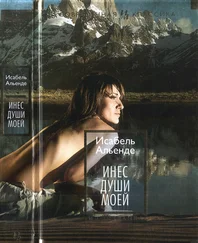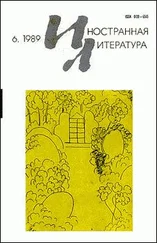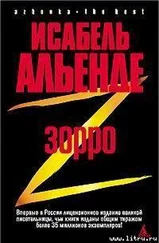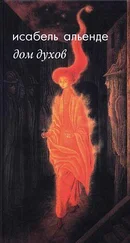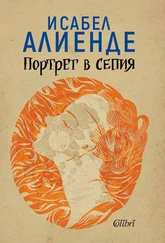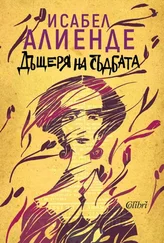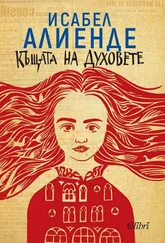“That doesn’t prove anything.”
“Some comrades take turns to be on guard day and night because of possible sabotage. They’ve seen crates being unloaded from trucks. Since they looked different from the usual loads, they decided to investigate. They’re certain they were full of weapons. There’s going to be a bloodbath here, Doctor, because the youth in the revolutionary movement are armed as well.”
That night Victor commented on this to Allende. They were finishing a game they had postponed for several days. The house, purchased by the government as a presidential residence, was Spanish-style, with arched windows, red tiles, a mosaic with the national coat of arms over the entrance, and two tall palm trees visible from the street. The guards knew Victor, and no one was surprised he should turn up late at night. He and Allende played chess in the living room, where there was always a board set up, surrounded by books and works of art.
Allende was not surprised by what Victor had to say. He was already aware of the situation, but legally it was impossible to raid either that factory or any others where doubtless the same thing was occurring. “Don’t worry, Victor. As long as the armed forces remain loyal to the government, there’s nothing to fear. I trust the commander in chief, he’s an honorable man.” He added that the vociferous left-wing extremists who were demanding a Cuban-style revolution were just as dangerous; those hotheads did as much harm to the government as the right wing.
At the end of that year a mass homage to Pablo Neruda was held in the National Stadium. This would be the poet’s last public appearance. The previous year, he had received the Nobel Prize from the hands of the elderly Swedish monarch. Neruda quit his position as ambassador to France and withdrew to the anarchic house at Isla Negra that he loved so much. He was ill, but continued writing in his small study with the angry sea pounding the rocks outside his window. Over the next few months Victor visited him several times as a friend, and on two occasions as a doctor. Neruda would greet him in his indigenous poncho and beret, affable and as much a gourmand as ever, more than ready to share a sea bass baked in the oven and a bottle of Chilean wine and to talk about life. No longer was he the playful joker who dressed up to entertain his friends and wrote odes to a happy day. Although he was flooded with invitations, prizes, and admiring messages from all over the world, his heart was heavy. He was afraid for Chile.
He was writing his memoirs, in which the Spanish Civil War and the Winnipeg filled several pages. He grew emotional when he recalled all the many Spanish friends who had been murdered or were missing. “I don’t want to die before Franco,” he would say. Victor assured him he would live for many years: his illness was slow-moving and under control, but he too suspected the Caudillo was immortal: he had clung to power with an iron fist for thirty-three years already. Victor’s memory of Spain was increasingly vague. At midnight every year he proposed a toast to the New Year and for a swift return to his home country, but he did so only out of tradition, without any real hope or desire. He suspected that the Spain where he was born, the Spain he knew and had fought for, no longer existed. In all the years dominated by uniforms and cassocks, it must have become a place to which he no longer belonged.
Like Neruda, he too was afraid for Chile. Rumors of a possible military coup that had been heard for two years now suddenly grew louder. The president still trusted the armed forces, even though he knew they were split. By the start of spring 1973, violence from the opposition had reached unprecedented levels, while discontent among the military had become a threat. Undermined by his officers’ insubordination, the commander in chief resigned in late August. He explained to the president that his duty as a soldier was to step down to avoid the breakdown of military discipline. His gesture proved useless. At five in the morning on September 11, the feared military coup took place. Within a few hours Chilean reality was turned upside down, and nothing was ever the same again.
Victor left early for the hospital. He found streets blocked by tanks, lines of green trucks transporting troops, and helicopters buzzing low in the sky like birds of ill omen. Soldiers in combat gear and faces painted like Comanches rifle-butted the few civilians out at that time of the morning. Victor understood immediately what was going on and returned home, calling Roser in Caracas and Marcel in Colorado. They both announced they would catch the next available plane back to Chile, but he convinced them they ought to wait for the worst of the storm to blow over. He tried in vain to get in touch with the president and political leaders he knew. There was no news. The television channels were in the hands of the rebels, and so were all the radio stations apart from one, which confirmed what he suspected. The operation to silence the country, directed from the U.S. embassy, was precise and efficient. Censorship began at once.
Victor decided his place was at the hospital, and so threw a change of clothes and his toothbrush into a bag and drove there along backstreets in his old Citroën. He had with him a transistor radio that was transmitting, amid harsh screeches, the voice of the president denouncing the betrayal of the armed forces and the Fascist coup. He urged the people to stay calm in their workplaces and not permit themselves to be provoked or massacred, repeating that he would remain at his post defending the legitimate government. “Placed in a historic transition, I will pay for loyalty to the people with my life.” Victor’s tears prevented him from driving on, and he came to a halt just as the fighter planes roared overhead. Almost immediately he heard the first bombs being dropped. He saw thick clouds of smoke in the distance and calculated, to his astonishment, that they were bombing the presidential palace.
—
THE FOUR GENERALS OF the military junta controlling the country’s destiny appeared several times a day on television with their edicts and proclamations. They were in uniform, framed by the national flag and coat of arms, with military marches playing in the background. All information was tightly censored. They said Salvador Allende had committed suicide in the palace, although Victor suspected they had killed him as they had so many others. It was only then that he understood how grave the situation was. There would be no going back.
Government ministers were arrested, Congress was declared in permanent recess, political parties were banned, press freedom and citizens’ rights were suspended until further notice. Anyone in military barracks who hesitated to join the coup was arrested, and many of them shot, although this didn’t become known until much later, because the armed forces had to give the impression they were monolithic and indestructible. To avoid being murdered by his own comrades in arms, the former commander in chief fled to Argentina, but a year later a bomb was put in his car and he died, blown to pieces together with his wife.
General Augusto Pinochet led the military junta, and soon came to personify the dictatorship. Repression was instantaneous, brutal, and thorough. It was announced that no stone would remain unturned, that the Marxists would be dragged out of their hiding places wherever they were, and the fatherland would be cleansed of the communist cancer at any cost. While in the bourgeois neighborhoods they finally celebrated with the champagne put aside for almost three years, in the working-class barrios and in the shantytowns there was a reign of terror.
Victor didn’t return home for nine days, at first because there was a seventy-two-hour curfew and nobody could go out into the street, and afterward because the hospital was full to overflowing. There was a stream of patients with bullet wounds, and the morgue filled with unidentified corpses. Victor ate what he could find in the cafeteria, slept fitfully in a chair, washed his body with a sponge, and was able to change clothes only once. It took him several hours to place an international call. He phoned Roser from the hospital, ordering her not to return for any reason until he said she could, and telling her to pass the message on to Marcel. The university had been shut down, and any attempt at resistance was stifled by gunfire. He was told that the walls of the School of Journalism and other faculties were smeared with blood. He couldn’t tell Roser anything about the situation in the Conservatory of Music or her students. The doctors’ strike came to an end at once, and his colleagues returned to work in a cheerful mood. The purge had begun of hospital staff and even of patients, who were pulled from their beds by the security forces. A colonel was put in charge of the hospital, and machine gun–toting soldiers guarded the entrances and exits, corridors, wards, and even operating rooms. Many left-wing doctors were arrested, and others fled or sought asylum, and yet Victor went on working with an irrational sense of impunity.
Читать дальше


